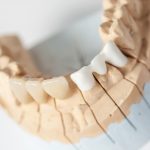Symptoms Of Common Dental Issues
Thanks to the internet, many of us like to pretend we’re medical professionals by quickly typing in our symptoms into Google and then clicking through the pages of possible diagnoses.
Unfortunately, not only can this yield bad results and produce anxiety, but it can also cause you to actually overlook issues because, on paper, they appear “not so bad.”
For example, tooth sensitivity brings back thousands of results with some from reputable sources like the Mayo Clinic and American Dental Association. However, each site lists a range of possible maladies that plague you. Without visiting your dentist, it’s impossible to determine if your tooth sensitivity stems from a cavity or from something more serious.
We’re going to walk through several common dental issues that may appear commonplace from a quick internet search, but that really require professional intervention to ensure no lasting damage occurs.
Tooth sensitivity
Have you every drank something really cold, or maybe bit into something really sweet, and all of the sudden you experience pain in one of your teeth?
If this is a rare occurrence, you can attribute it to a one-off situation. However, if you experience tooth sensitivity more frequently, you aren’t alone. Approximately 40 million Americans have felt the same thing for extended periods of time.
So, if it’s so common, is tooth sensitivity something you should worry about? The short answer is yes. The inside of your tooth is full of tiny nerve endings that are protected by enamel, which is the hard outer layer of your tooth. Sudden tooth sensitivity can be caused by worn-down enamel, tooth erosion, and tooth decay. Each of these can cause more serious issues like gum disease or tooth loss if left untreated.
Next time you feel tooth sensitivity, don’t brush it off! Give your dentist a call.
Bleeding gums
We’ve all seen blood at times when we spit out the toothpaste after brushing our teeth. But just because it doesn’t seem like a worrisome amount of blood, or if there was no pain associated with it, should you ignore the symptom?
Bleeding gums can result from medications you are taking, or pregnancy, or can sometimes be an indicator or periodontitis. That said, the number-one reason for bleeding gums is plaque buildup along the gum line. When you fail to remove the plaque, it can harden and lead to an irritation of the gum tissues. So, if you start to see blood a little more often, it’s important to revisit your oral hygiene routine, cut out processed sugar from your diet and check the side-effects on your medications. If these steps don’t relieve the issue, it’s important to visit your dentist to check for advanced gum disease.
An adult’s worst fear…a loose tooth
As we age, having a loose tooth doesn’t call for a visit from the tooth fairy. It normally results in a visit to the dentist after a lot of mixed feelings and anxiety.
If you, as an adult, think you have a loose tooth, it’s most commonly the result of untested gum disease that’s led to an infection below the gumline. This causes the bone to break down and for the nearest tooth (or teeth) to become loose.
Losing a tooth this way as an adult is one of the more serious results of bleeding gums, and exhibits why getting to the dentist sooner rather than later is important.
Osteoporosis is also another disease that results in loose teeth. This is a condition where the bones throughout the body lose bone density and become much more prone to fracture. When the density of the bone around the teeth lessens, teeth can become loose. Women with osteoporosis are three times as likely to experience a loose tooth as opposed to women without the disease. This is a great example of how the mouth is the window to the body and how important it is to be aware of changes in the oral cavity!
Alone, each of these three conditions doesn’t have to be too harmful or the “end of the world.” However, each can be a risk factor for the next, and if you ignore one symptom then the result becomes much worse. At the first sign of any of these issues, it’s important to schedule an appointment.
Questions? Curiosities? Leave us a comment or visit us on Facebook!






